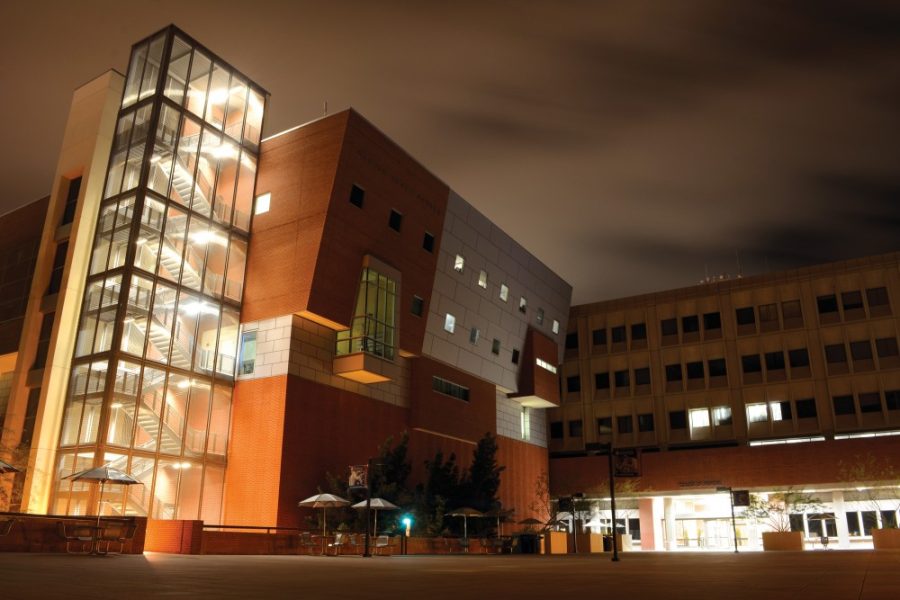The MedCats for Developmental Medicine chapter at the UA College of Medicine-Tucson is changing the way people think about, interact and get involved with people who have developmental disabilities.
The chapter has been working over the course of the past year to help make quality health care for people with disabilities more accessible and to promote education for health care providers on how to better understand and treat people with developmental disabilities.
The MedCats, not to be confused with the UA undergraduate club of the same name, is a student chapter of the American Academy of Developmental Medicine and Dentistry. The chapter began last year with recruitment, campaigning and educational events to help raise awareness for developmentally disabled people.
Aimee Le, a second-year medical student at the College of Medicine, is one of the four co-coordinators of the chapter and one of its student leaders.
Le defined developmental disabilities as a blanket term for those with any type of mental disability.
“The range is so wide,” Le said. “Everyone with Down syndrome, autism or even people who develop a disability from an accident.”
Le said that the chapter doesn’t focus on one particular disability. The effective treatment of developmental disabilities requires a broader understanding of what they entail and an understanding of the people affected, according to Le.
“Every person is different, they’re going to have different needs, different strengths and weaknesses. So the approach, when you’re going in and treating a patient, the most important thing is just being understanding, being caring, being attentive — just like any other patient,” Le said. “But you have to be especially aware with what’s wrong with them, because they may not be able to communicate it to you.”
The mission of the chapter is to promote education for healthcare providers.
Le said that mission contributes to the group’s larger goal of inclusivity.
“Our mission is to really raise awareness about being a more inclusive society and to help train future physicians to kind of recognize and be cognizant of people with special needs,” she said.
Le said that one of the greatest aspects of the College of Medicine is its emphasis on helping under-served communities.
“I think that it’s a really small area of medicine, but it’s really important,” Le said. “A lot of people really do have some sort of disability, and we just have to kind of be aware.”
Le has been part of the struggle to raise awareness since she was young.
“I have a special-needs brother,” she said. “I’ve always helped my family out by taking care of him, but growing up I also noticed that we were bullied.”
One way the chapter has helped in accomplishing inclusivity is by attending and campaigning at the Special Olympics, where MedCats brought a large banner as part of the R-word campaign. The campaign seeks to end the use of the word retarded because of the derogatory connotation it has developed over the years.
Though the chapter focuses on improving education of doctors to positively change how the medical system treats people with developmental disabilities, Le said that the average, everyday citizen can help in their own small ways.
“I think that simple acts of kindness can really make a huge difference in the long run, because then you set an example for others. And when you set an example for others, you create a domino effect,” Le said. “And that in turn will gradually change people’s perspectives and get them to be more open, and be like, ‘you know what, yeah, maybe I will do a random act of kindness.’ That’s important, and people always know that we need more of that.”
Follow Andy Alvarado on Twitter.









